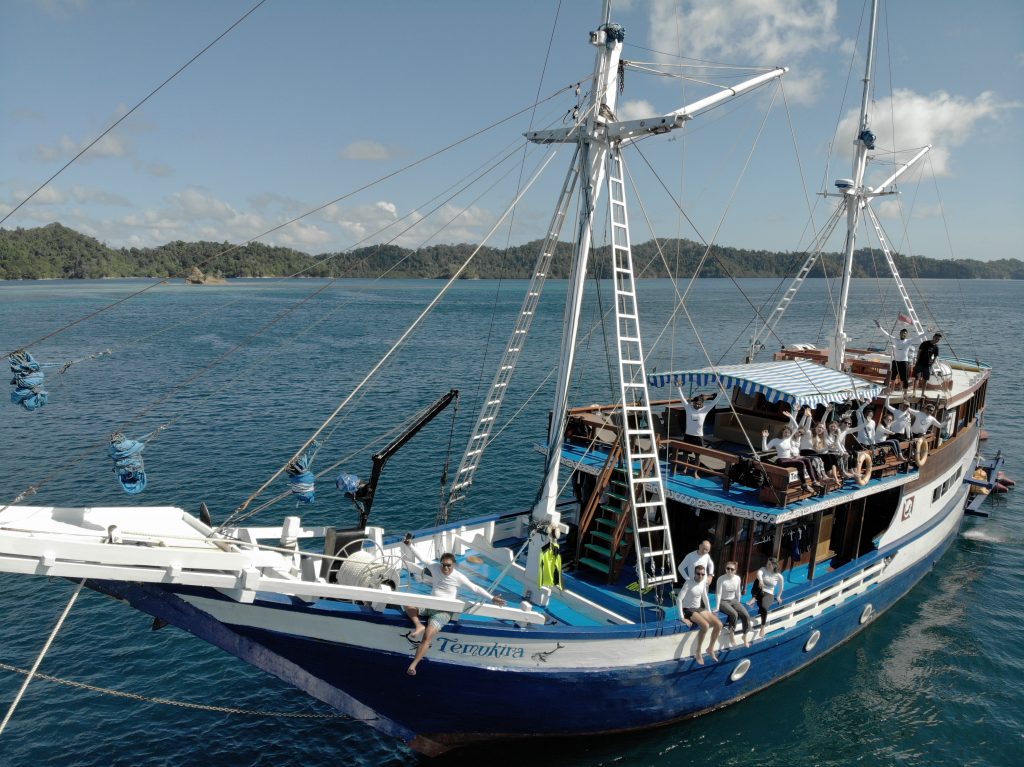After a long trip we finally arrived in Waisai, Raja Ampat. Here, we wanted to sort the fins and snorkels and meet the most important stakeholders for our trip. Through a tropical monsoon we ran to the meeting: around the table that looked like a wedding cake were sitting about twenty West-Papuan governmental partners, conservation NGOs, managers of luxury resort and dive centers and homestay owners. Pak Syafri, the director of BLUD UPTD KKPD (the agency responsible for MPA regulations) welcomed us, and Lisa Becking introduced the Resilience of the Richest Reefs project in Indonesian, including our plans for the coming days on board the Temukira.
Plastic waste and nutrients
We were suprised how well the meeting was attended. It appeared that there is a general sense of concern among the stakeholders about the rapidly increasing numbers of tourists and the related population growth on the islands. People mentioned how that leads to more plastic waste and nutrients in the water affecting the corals.
Several participants reported about coral diseases, algae growth and invasions of crown of thorns seastars. Others called for stricter enforcement of the regulations. For example, there is a cap on liveaboards- these are traditional vessels accommodating dive tourists. Only 40 are allowed in the area but people at the meeting observed more than that. They mentioned divers without entrance permits and an increase in illegal fishing. The director of BLUD explained that not everything happening in the MPA is under his control and that there is a lack of funds for patrolling the 1.3 million hectares of marine protected area.
Aksie!
Most of the meeting took place in rapidly spoken Indonesian, so I had to judge the intensity of the conversation by reading expressions. We all felt that the meeting ended with great energy, resulting in a joint call for action: Implementasie! Aksie! It was clear that everyone present was concerned with recent changes in the area.
The director of BLUD invited all the participants to collaborate in tackling the issues. For instance, some of the resorts are already collecting and recycling plastic in the surrounding villages and on the beaches. Resorts and homestays could develop waste water gardens to reduce the nutrient outflow into the ocean. Decision makers should be informed about the environmental impacts of tourism development in the MPAs. We left with the urge to start our trip: clearly, our visit is timely and people are eager to hear about our findings in the future.

